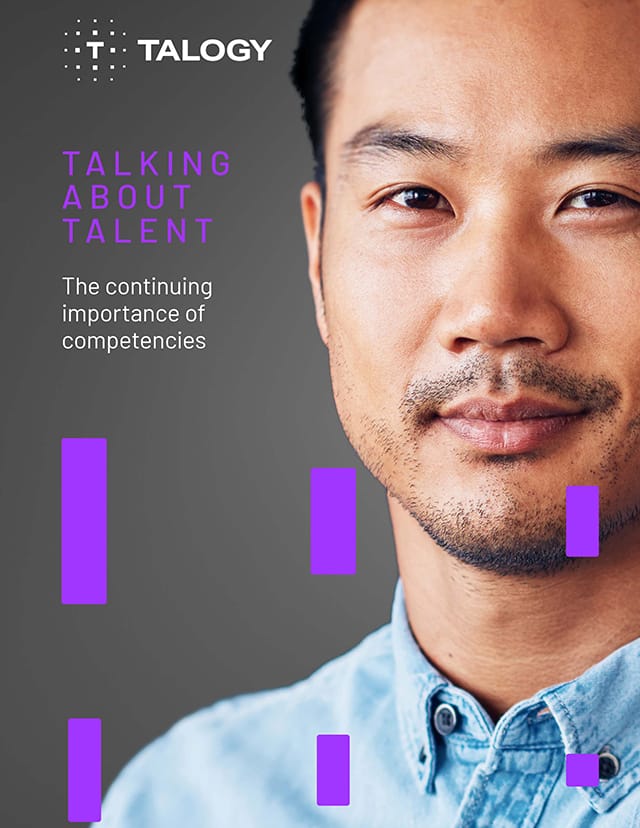Written by Ali Shalfrooshan, Head of International Assessment R&D
We officially live in the future. Ideas that were once science fiction are now science fact. Artificial Intelligence, drones, self-driving cars, and 3D printers are all examples of things that are now a part of our working lives, which were once fantastical ideas and concepts.
Enhancements in technology have always been reflected in how we recruit and assess people. The global adoption of the internet delivered the most significant change. Overall, these enhancements in technology have greatly supported and improved recruitment, enabling organisations to assess candidates objectively, globally, reliably, and automatically.
These advances have not only enhanced the practicalities of recruitment, but also the types of skills and qualities that can be measured in the individual. The improvements brought by these technologies sometimes make more long-standing approaches like the structured interview feel quite antiquated. However, even the most sophisticated recruitment process typically has an interview at its heart. In fact, research by Judge shows that regardless of the recruitment process an organisation utilises, the one constant is the interview.
Interviewing is still the most important assessment
There are many assessment methods that are used by recruiters – cognitive ability tests, personality tests, assessment centres, situational judgment tests to name a few – that can all be used to assess the potential of a candidate for a role.
In a recent paper by Paul Sackett, he reviewed a range of meta-analyses that compared twelve assessment measures in terms of their predictiveness of future performance. Many were shown to be predictive of future performance. However, despite all the amazing ways we can assess candidates, the humble structured interview emerged as the strongest predictor of job performance.
This means that despite the evolution of recruitment and the number of methods used, structured interviews were still identified as the most predictive. Interestingly, given that structured is one of the most predictive, one of the least predictive is what is termed an unstructured interview.
Read more: How important is the interview in the recruitment process?
Structured interview vs. unstructured interview
What is a structured interview and what is an unstructured one? What are the differences between these two types of interviews?
- Structured interviews follow a set of predetermined questions, usually based on a careful job analysis, and typically involve a set of consistent questions and evaluation standards.
- Unstructured interviews have no fixed format or set of questions to be answered, nor is there a fixed procedure for scoring responses and the evaluation is made by the interviewer.
In addition to being more predictive of future performance, the research has shown that the structured interview is more reliable and less susceptible to bias. Structured interviews are less prone to bias because the decision process is linked to job-related factors, limiting the influence of extraneous or irrelevant information that is not job-related. The content and evaluation process in unstructured interviews may be more reflective of the interviewers’ implicit theories of the job requirements than the actual job requirements.
How to ensure interviews are predictive of performance
1. Understand the role
The foundation of all good recruitment is understanding the role, and what success within it truly looks like. This influences everything including what questions you are asking, picking the right competencies, and how you will evaluate the candidate. This fundamental process ensures that interviews are as job relevant as possible.
2. Ensure consistency and quality of questions and evaluation
The reason for the improved reliability, validity, and accuracy of a structured interview is with a result of the quality and consistency of the approach. Every candidate has the same questions and is evaluated using the same criteria, therefore making it easier to compare candidates objectively. However, the quality of the questions and behavioural indicators you use can really influence the outcome. Make sure they are of a good enough quality, are reflective of the behaviours you are looking for, and enable you to make the right decisions.
3. Consider upskilling and providing the right tools
Interviewing, like any other skill, needs to be developed. However, the truth is the majority of those responsible for interviewing are hiring managers, whose core skills may not include objective assessment or may not interview very often.
The good news is interviewing is a skill anyone can learn, and there are many tools available that can help hiring managers. Being a good interviewer is not about building great rapport or being charismatic, it is actually the opposite. It is about being consistent, evaluating evidence objectively, and focusing on the individual’s responses – all things any hiring manager can do with the right training and tools.


